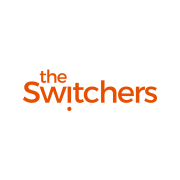

Subscribe to SCP News
Olive oil production and processing going "green" in Morocco
A 2-day Horizon 2020 Capacity Building/Mediterranean Environment Programme (CB/MEP) seminar was hosted in the city of Meknes in Morocco during the first two days of March 2011. It aimed at improving knowledge on how to reduce the environmental impacts of olive oil production from olive tree cultivation to olive toil extraction. Innovative solutions for the management of olive oil by-products claimed special attention.
The high demand for olive oil worldwide has made it a pressing concern in the Mediterranean to look for more sustainable approaches within this industry, especially with the growing population caused by olive mill wastes (OMW) to water and soil resources. The situation in Morocco was the main focus, in terms of the environmental impacts imposed during the olive oil production cycle, strategies for proper management of by-products and olive triturating waste, technical, economic and environmental aspects of the “Two and Three-phase chain” techniques and organic agriculture.
The seminar helped representatives of public institutions in designing effective strategies, addressing the reduction of olive mill wastes and also the possibility of subsidizing new green installations.
It was stated by the trainers that the seminar fully addressed latest technologies, the applications of which will help in on-going and future projects. The central issue of the seminar was to develop the participants’ capacity to promote more sustainable and more economically viable alternatives / techniques based on experiences from other Mediterranean countries (specially from Spain and Italy).
To achieve notable impacts, the seminar targeted candidates involved in olive oil production or in the management of by-products of the Moroccan olive oil sector, members of local and regional government administration, members of ministries and national agencies, NGO representatives, and researchers. They were given the opportunity to gain hands-on knowledge through lectures, debates and a field visit. The overall aim was to promote environmental mainstreaming and strengthen capacities at national level yet with direct impacts at regional level.
UNEP/MAP’s Regional Activity Center for Cleaner Production organized the event and the working language was French.














